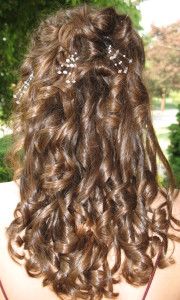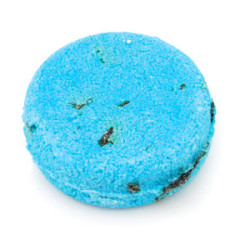A few months ago, I moved into a great new apartment. I also simultaneously decided to let my hair grow out. Looking back, I should have known that taking on two such two seemingly unrelated yet equally stressful things would backfire on me. As I settled into my new space and watched my bank account fall, I noticed that my hair was also getting limper and much less curly than it is in its natural state. I attributed the latter to gravity, but it’s also something else: my new apartment.
That’s right: getting a new area code also meant that the sediment in my water was now different than it had been, and my hair was not happy. It turns out that I live in a soft water zone, which extends along the entire east coast of the United States. Soft water tends to have low amounts of mineral deposits, and is therefore “cleaner” and generally good for hair and skin. Yet for fine hair like mine, this is not ideal. When hair gets too clean, it’s able to make more of its own oils which, when combined with soap, leave behind a filmy or slimy feeling. Excess oil means extra weight, and volume is lost.
On the other extreme, the majority of American showerheads (about 85%, predominately across the Midwest, Great Lakes, and Pacific Northwest regions) spray out hard water, which contains more minerals and sediments. When they react with soap (like shampoo), the cleanser becomes less effective, so you tend to use more of it. Because natural oils are never sufficiently cleaned, buildup is more likely to occur. At the same time, hair can get dry, tangled, and break more easily.
Neither of those options (limp and greasy vs. build-up and brittle) appealing to you? Yeah, me neither. Here is what you can do to save your hair against shower water, wherever you live:
Volumizing, light-weight shampoos and conditioners can help give boost to soft-watered hair. LUSH, an all-natural soap brand, also make a special shampoo bar for this very purpose.
To counteract hard water buildup, you can use shampoos with organic acids called “chelating agents,” such as citric acid. Apple cider vinegar or lemon juice will have the same effect of stripping excess minerals (and while you’re at it, you can even clean your house with these products!). As an alternative to treating the hair, there are many water softening filters that will alleviate the problem at the source.
No matter what kind of hair you have, it’s of course ideal to wash with a balance of hard and soft (a good rule for life, too). If you find yourself in a water-related hair dilemma, though, doing a bit of research into your city’s or town’s mineral deposits can save a few strands from being pulled out from stress–at least until the next rent bill comes.
Related: Do You Need a Hair Detox? Part I and II
Also by Jen: Snapped: Dealing with Stress by Self-Gifting
Vegan Cranberry Sauce Crumb Cake
__
Photo: Jennifer Kurdyla; Lush






